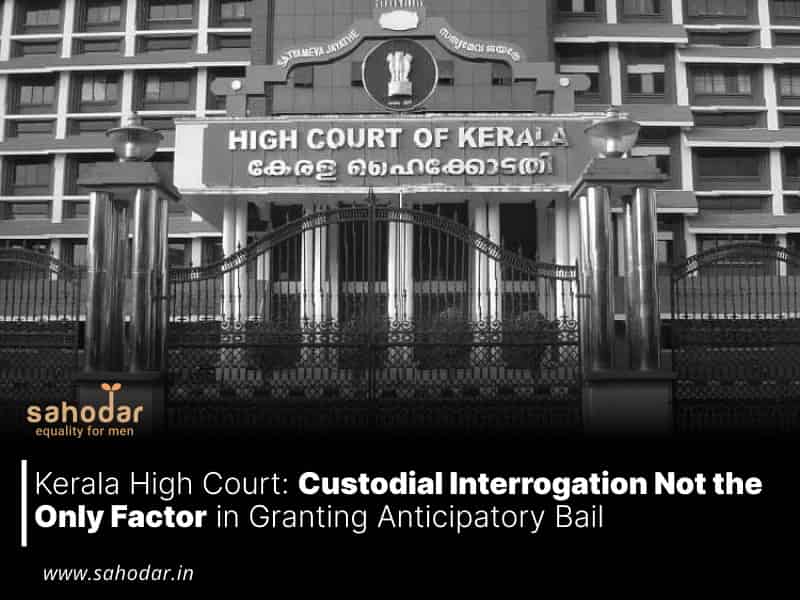While dismissing the bail application the court observed that custodial interrogation is just one aspect that is considered alongside other grounds while deciding on anticipatory bail applications.
Granting Anticipatory Bail cannot be solely because custodial interrogation of the accused is unnecessary, the Kerala High Court recently ruled while denying pre-arrest bail to a teacher accused under the Protection of Children from Sexual Offences Act (POCSO Act) [Prabhakaran P v State of Kerala & Anr].
The Court emphasized that various factors, including the existence of a prima facie case, the nature of the offense, and the severity of the punishment, must be considered when evaluating a bail application. The lack of need for custodial interrogation cannot be the sole criterion for granting anticipatory bail.
Justice A. Badharudeen pointed out that there is a common misconception that anticipatory bail should be granted if custodial interrogation is not required.
He stressed that this is only one aspect to be considered and should not be the deciding factor in granting bail.
“There appears to be a serious misconception of law that if no case for custodial interrogation is made out by the prosecution, then that alone would be a good ground to grant anticipatory bail. Custodial interrogation can be one of the relevant aspects to be considered along with other grounds while deciding an application seeking anticipatory bail,” the Court said.
The Court was adjudicating an anticipatory bail application submitted by a 65-year-old educator and principal of a tuition center, who is accused of sexually harassing a student in the 9th standard.
The accused has been charged under various provisions of the Indian Penal Code (IPC), the Protection of Children from Sexual Offences (POCSO) Act, and Section 75 of the Juvenile Justice (Care and Protection of Children) Act, 2015, which criminalizes cruelty towards children.
The Senior Counsel representing the petitioner contended that the accused was innocent and highlighted that, in the 38 years of operating the tuition center, no similar allegations had ever been made against him.
Conversely, the counsel for the complainant and the public prosecutor opposed the bail application, asserting that the evidence on record prima facie implicated the accused, thereby necessitating custodial interrogation to uncover the complete scope of the alleged offenses.
The Court observed that the arrest and custodial investigation of the accused are imperative for a thorough and meaningful investigation, as well as for substantiating the alleged charges.
Consequently, the Court opined that the absence of necessity for custodial interrogation alone does not constitute a sufficient ground for granting anticipatory bail.
Furthermore, the Court referenced the Supreme Court’s ruling in Sumitha Pradeep v. Arum Kumar CK & Anr, emphasizing that,
“The first and foremost thing that the court hearing an anticipatory bail application should consider is the prima facie case put up against the accused. Thereafter, the nature of the offence should be looked into along with the severity of the punishment. Custodial interrogation can be one of the grounds to decline anticipatory bail. However, even if custodial interrogation is not required or necessitated, by itself, cannot be a ground to grant anticipatory bail.”
The Court acknowledged the significant trauma experienced by the victim, resulting in detrimental effects on her academic pursuits. Consequently, it found ample justification to reject the application for pre-arrest bail. Thus, the plea was dismissed.

